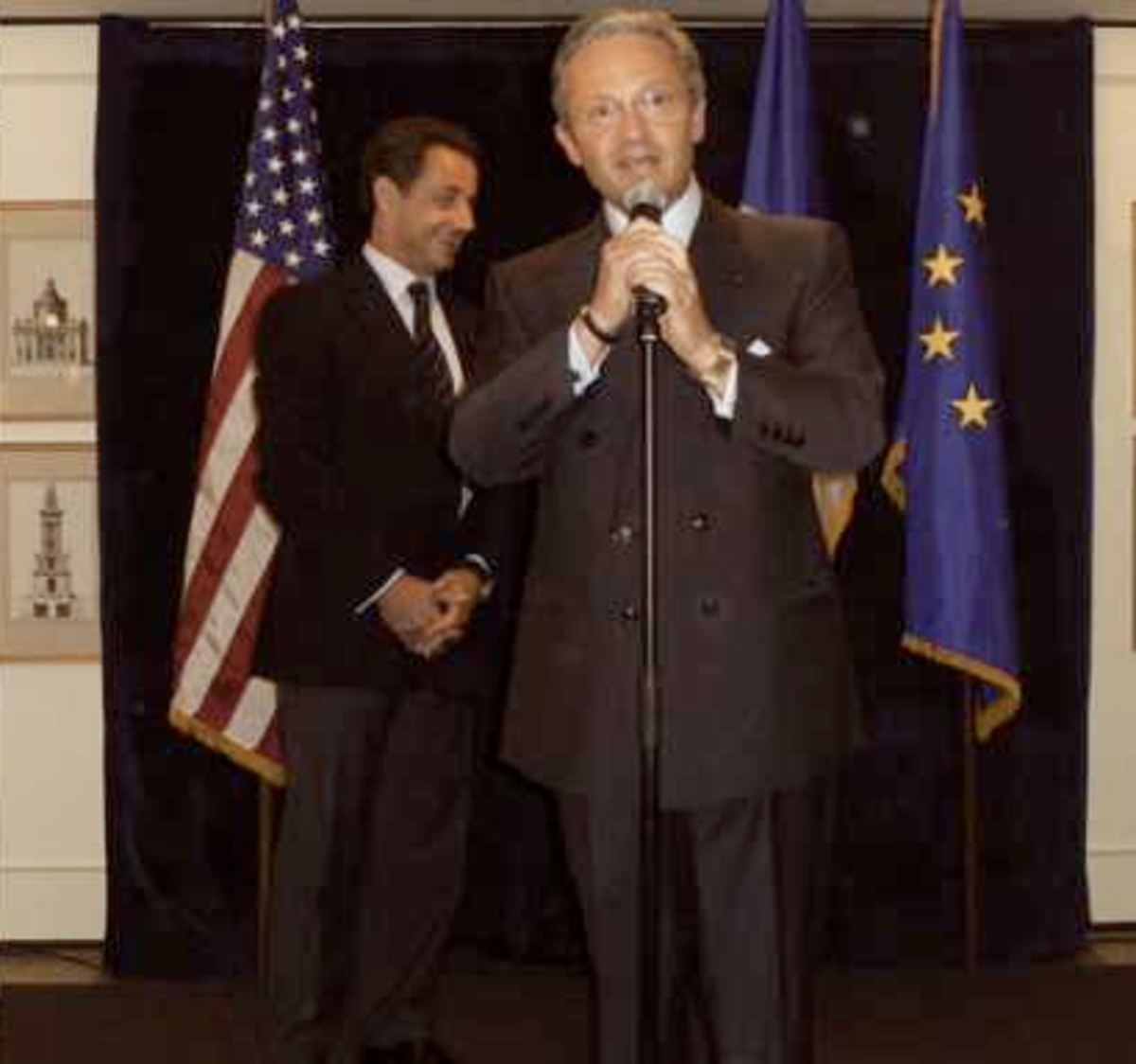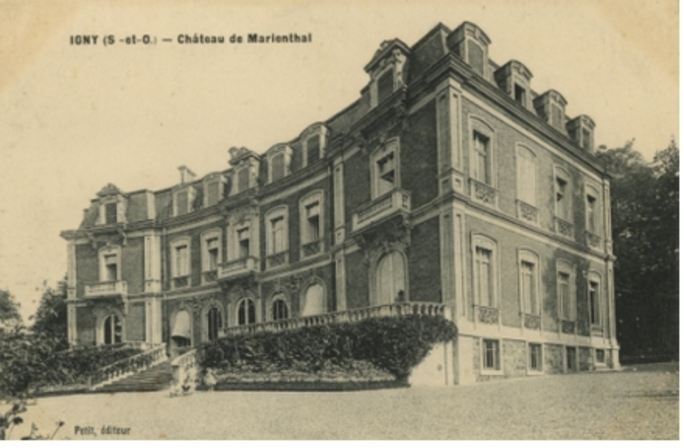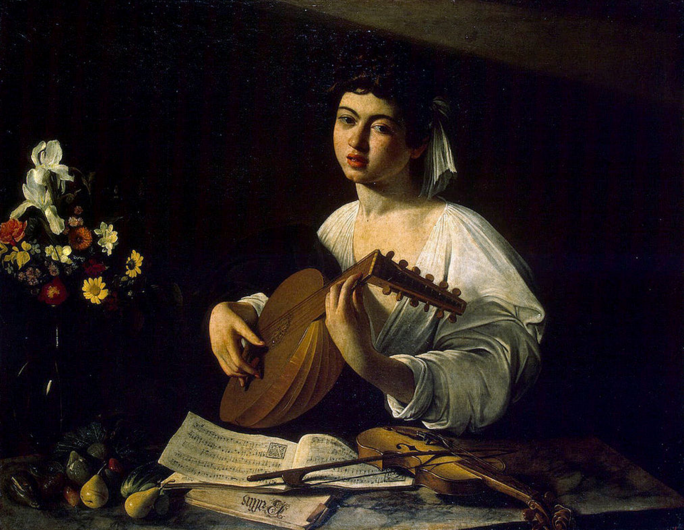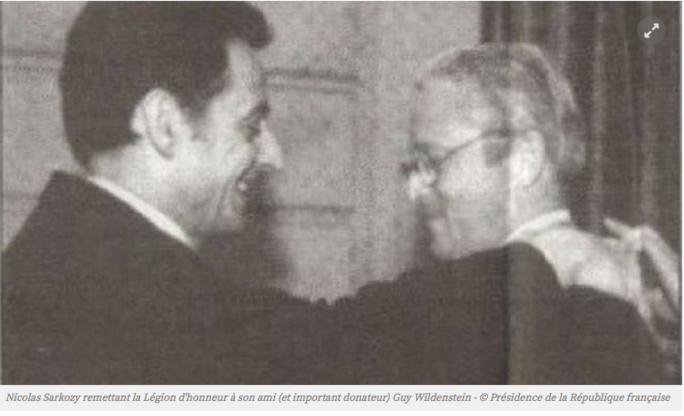The trial opens in Paris next month of Guy Wildenstein, the 69-year-old son of the late art collector Daniel Wildenstein, on charges of tax fraud and money laundering in one of the most remarkable cases of its kind in France.
Wildenstein, along with two other members of his family and three of their financial advisors, are accused of hiding from the tax authorities vast assets they inherited from the estate of Wildenstein senior, who died in 2001.
Mediapart has gained access to the judicial document detailing the case for the trial, and which reveals, as unveiled in this report, the staggering sums involved and the complex offshore structures that hid, among other assets, a stash of prized artworks.

The case against Guy Wildenstein also has political repercussions. Wildenstein is a close acquaintance of former French president and now conservative opposition party leader Nicolas Sarkozy, by whose hands he was awarded with the Légion d’honneur in 2009. Wildenstein was a prominent and active member of the so-called Premier Cercle - 'First Circle' – of Sarkozy’s party, which was then called the UMP, renamed this year as Les Républicains. The Premier Cercle was a structure that sought out political donations from the party’s wealthiest members, and which was created to raise funds for Sarkozy’s 2007 presidential campaign.
The trial in January stems from an affair that began on October 23rd 2001, when Daniel Wildenstein, the most prominent 20th-century art dealer and collector, and a leading owner-breeder of thoroughbred horses, died at the age of 84 after lying for ten days in a coma in a Paris hospital. For his widow, and second wife, Sylvia (née Roth), his death was to prove not only a personal shock but also a financial one.
For Wildenstein’s two sons (from his first marriage to Martine Kapferer), Guy and Alec, soon informed her that their father had died a ruined man with financial liabilities. That account was backed by several people close to the Wildenstein family, and the widow subsequently renounced her claim to the inheritance.
However, during the ten days preceding Daniel Wildenstein’s death, while he was in a coma, numerous financial operations were ordered in his name. On October 19th, four days before he passed away, the sale was organised of 69 thoroughbred horses belonging to Wildenstein’s company Écurie Wildenstein, in which Guy and Alec were his only partners.
Six months after Daniel’s death came the first clear indication that Sylvia Wildenstein had made a costly mistake in signing away her rights to the inheritance. On April 23rd 2002, Guy and Alec Wildenstein notified the French tax authorities that their father had left a fortune of 42.985 million euros, made up essentially of works of art. She would later discover that this was just a small part of a colossal fortune she had been excluded from.
Sylvia took on the services of Paris lawyer Claude Dumont-Beghi at the start of what became an interminable legal battle between her and her two sons-in-law. After the death of Alec, on February 17th 2008, the battle widened to include his three heirs, namely his two children, Diane and Alec Junior Wildenstein, and Alec’s widow Liouba Wildenstein.
In 2004, Sylvia Wildenstein obtained a provisional sum from the inheritance of 15 million euros. One year later she obtained a key legal decision when, on April 14th 2005, the Paris appeals court declared Sylvia Wildenstein’s renunciation of her rights to the inheritance to be void, reinstated her as one of the heirs, and consequently also declared void the inheritance declared by Alec and Guy. Sylvia was awarded a yearly income of 400,000 euros and the right to occupy one of the Wildenstein apartments.
However, on June 16th 2010, the Paris appeals court ruled against Sylvia Wildenstein in her claim for a compensation sum for material losses and personal distress caused by the deceit over the inheritance. Dismissing the claim, the court ruled she should pay a total of 175,000 euros in damages and costs to the other Wildenstein heirs for what the court described as an “abusive legal procedure”. The magistrates criticized her for causing a “media ballyhoo” over her dispute with the other heirs, which they said was designed to give her the appearance of “a victim”, and underlined that she had already obtained an advance sum of 15 million euros in 2004. Dumont-Beghi lodged an appeal against the ruling.

Dumont-Beghi, who has now written two books about the case – the second, Les milliards cachés des Wildenstein (The Wildensteins’ Hidden Billions) is to be published in January - estimated that the inheritance of 42.985 million euros declared by Guy and Alec was just 10% of the true value of the artworks and other assets in question.
The 69 thoroughbreds sold days before Daniel Wildenstein’s death were declared by the brothers to be worth a total of 809,000 euros, while one of the properties among these was Daniel Wildenstein’s mansion in the Paris suburb of Verrières-le-Buisson, the château de Marienthal, which the brothers claimed had a value of 2 million euros; it was later re-evaluated at 20 million euros.
Haggling millions with the taxman
The lawyer was to discover that among the undeclared assets was the 16th-century Michelangelo Caravaggio painting The Lute Player, loaned to the Metropolitan Museum of Art in New York and estimated to be worth 100 million euros.

Enlargement : Illustration 3

Dumont-Beghi, would eventually conclude that the true sum of the wealth left by Daniel Wildenstein was 4 billion euros.
The trail to that sum began with the conclusions of an expert evaluation of the value of the inheritance ordered amid the legal dispute between Sylvia and the Wildenstein brothers, dated December 2006. It referred to two trusts based in tax havens. “During the end of the evaluation, the respondents revealed the existence of family trusts in which a substantial part of the Wildenstein estate is supposedly transferred,” the report of the evaluation read. “No element of proof was given to us.”
The two trusts in question were called the Sylvia Trust and the David Trust. The first was to benefit Sylvia and the second was to benefit the grandchildren of her late husband.
Under French law, a trust has a similar fiscal status as a donation, and is regarded as an advance sum of an inheritance. The procedure is legal, on condition that it is declared in the inheritance. Given that Guy and Alec Wildenstein were not the named beneficiaries, they had no need to declare it in the declaration they made in 2002.
But Dumont-Beghi was to discover that the David Trust held a debt owed to the estate of Daniel Wildenstein and which was never honoured and never declared to the French tax authorities. The asset was a 30,000-hectar ranch in Kenya bought by Daniel Wildenstein in the early 1980s, which is estimated to be worth 40 million euros. The ranch was the location of Sydney Pollack’s film Out of Africa.
The trail of the trusts resurfaced after the death of Alec Wildenstein in February 2008. Alec’s widow Liouba revealed the existence of two other Wildenstein-held trusts, the Delta Trust held in the Cayman Islands, and the Sons Trust based in Guernsey. The beneficiaries were Guy and Alec, and the significant sums they were found to contain should have been declared as part of the inheritance.
Via her lawyer, Sylvia Wildenstein directly alerted two successive finance ministers under Nicolas Sarkozy - then French president - Éric Woerth and François Baroin, over the existence of the trusts. But no reaction was forthcoming, and the two women were led to the conclusion that Guy Wildenstein’s close relations with Sarkozy may have played a role.
Subsequently, and after first attempting a procedure through the civil courts, Dumont-Beghi filed a complaint with the Paris public prosecutor’s office on September 8th 2010. That led to the opening of a judicial investigation into money laundering, the fraudulent organization of insolvency, and breach of trust. Two months later, on November 13th, Sylvia died in Paris of cancer, aged 78.
The following year, on August 29th 2011, another judicial investigation was opened into suspected tax fraud committed by the heirs of Daniel Wildenstein’s estate. Finally, the investigation was widened on December 21st 2012 to include suspected tax fraud concerning the estate of Alec Wildenstein.
The two examining magistrates in charge of the investigations, judges Serge Tournaire and Guillaume Daïef, concluded their enquiries earlier this year, and Guy Wildenstein, now aged 69, will stand trial in January on charges of tax fraud and money laundering. Also charged are his sister-in-law Liouba (Alec’s widow), her son Alec Junior and three of the family’s financial advisors.
Mediapart has gained access to the judges’ report summing up their reasons for sending Guy Wildenstein and his co-defendants for trial and which reveals the vast scope of the tax fraud he is accused of. It details how, on July 29th 2011, the French tax authorities informed the heirs of Daniel Wildenstein that they had concluded that 571 million euros should be added to the value of his estate, which the heirs declared in 2008 to be worth 44 million euros. As a result, the authorities claimed a total of 237 million euros in tax due (to be added to the 17 million euros it had previously claimed), plus a further 142 million euros in interest and a fine of 90 million euros. In all, the adjustment raised the total of taxes due on the estate was 469 million euros.
After negotiations, the sum was slightly reduced and in November 2014 the tax authorities wrote to the heirs to announce that the total owed was 447 million euros (the inheritance tax was reduced to 226 million euros, the interest payment to 135 million euros and the fine to 86 million euros). At the same period, the heirs of Alec Wildenstein received a tax adjustment that raised the total of taxes due to 61 million euros, plus 18 million euros in interestpayments and a fine of 24 million euros, representing a total of 103 million euros.
A stash of masterpieces
The combined total demanded by the tax authorities on the inheritance of the estates of Daniel Wildenstein and his son Alec amounts to 550 million euros (almost 50 million less than orginially demanded). But while this offers an indication of Daniel Wildenstein’s wealth and also the extent of the fraud the heirs are accused of, it is uncertain that the tax authorities and the judicial investigation have ascertained the true value of the assets amassed by Daniel Wildenstein.
In the case file of the investigation led by judges Tournaire and Daïef is a document, reproduced below, that lists the money and artworks handed to Alec and Guy Wildenstein from the Delta Trust (which contained American-held assets) between May 1st 2001 and July 31st 2004. The document was originally compiled in French and translated into English.
The list reveals but a small part of the assets that Alec and Guy received from their father - including some transferred before his death - and which were undeclared to the tax administration. The assets featured on the list have a total value of more than one billion euros, and include numerous artworks by Bonnard, Fragonard, Courbet, Picasso and Largillierre.
Yet Guy Wildenstein claimed in a recent interview with Paris-Matchthat he knew nothing, or practically nothing, of his father's affairs. "My father never talked to me about his business dealings, he would never have thought of asking me for advice in managing his fortune or selling his assets during his lifetime. I knew he had set up trusts but he never informed me of the details."
In their summing up of the case for sending the defendants for trial, the judges explain their decision to initiate criminal proceedings against Guy Wildenstein "for tax evasion on the estate of his father" and for "money laundering".
He is referred for trial "for having, in Paris and New York, from October 2001, and particularly in December 2008 during the second declaration of Daniel Wildenstein's estate, intentionally concealed a part of the sums subject to French taxation on Daniel Wildenstein's estate, in particular the properties in Kenya, the British Virgin Islands, 740 Madison Avenue and 19 East 64th Street in New York, shares in Wildenstein and Co. Inc., various art galleries and artworks, all placed in the Sons Trust, the David Trust, the Sylvia Trust and the GW Trust."
In the second part of the case regarding Alec Wildenstein's estate, Guy Wildenstein had asserted before the examining magistrates that since he was not a beneficiary of his brother's, he could not be charged with tax fraud relating to his estate. But this was not upheld. The referral order states: "This is why Guy Wildenstein will be sent for trial for complicity in tax evasion on the estate of his brother Alec, as well as for the offences of money laundering for which he was placed under investigation."
The trial order is as spectacular as unprecedented because the sums in question are considerable, and Guy Wildenstein is a well-known personality in the art world and in French politics. But it is also without equivalent in initiating criminal proceedings against entities that are usually beyond the reach of the justice system. In particular, it pinpoints two financial companies that played a key role in the trusts set up to benefit the Wildenstein family.
The first of these is Northern Trust Fiduciary Services (NTFS), a Guernsey-based offshore subsidiary of the American group Northern Trust, headquartered in Chicago. It is indicted "for having, in Guernsey, from September 1999, been complicit in the tax fraud committed in Paris by the beneficiaries of Daniel Wildenstein, consisting of intentionally concealing a part of the sums subject to French taxation on the estates, notably the properties in Kenya, the British Virgin Islands, 740 Madison Avenue and 19 East 64th Street in New York, shares in Wildenstein and Co. Inc., various art galleries and artworks, all placed in the Sons Trust and the David Trust."
The offshore company is also alleged to have allowed the Wildensteins "to administer the assets of these trusts although they are characterised as discretionary". For a trust to be considered discretionary, it is the manager, or trustee, alone who decides the distribution of the assets placed in the trust or the revenues generated.
The second entity is Royal Bank of Canada Trust Company Limited, indicted "for having, in the Bahamas from November 19th, 2004, been party to the tax fraud committed in Paris by the beneficiaries of Daniel Wildenstein".
'If it's a crime to be pro-Sarkozy, then I'm guilty!'
Among the other defendants in the trial in January is Robert Panhard, a member of the family that founded the Panhard vehicle maker, who is currently chairman of the Automobile Club de France and the Wildenstein family lawyer. He is charged with complicity in tax fraud. Another French lawyer, Olivier Riffaud, is charged with aggravated money laundering in a tax fraud, and a Swiss lawyer, Peter Altorfer, protector of the Sons, David and Delta trusts, is charged with both complicity in tax fraud and aggravated money laundering in a tax fraud. Alec Wildenstein's son Alec is also charged with tax fraud. Liouba Wildenstein, Alec’s widow from his second marriage, is charged with complicity in money laundering.
The trial will certainly be followed in the United States, particularly in New York, where Guy Wildenstein has his famed art gallery. In France it may well also negatively impact Nicolas Sarkozy, given his close friendship with the art dealer. Guy Wildenstein was the delegate for the east coast of the United States for Sarkozy's UMP party (now renamed Les Républicains), as illustrated in the video below by TV channel FRANCE 24 made in March 2007, during Sarkozy's successful election campaign for the French presidency.
During his recent interview with Paris-Match, Guy Wildenstein spoke clearly of his closeness with the former president, who made him commander of the Légion d’Honneur, France’s highest award for civil merit, in 2009 (see photo below). "If it is a crime to be pro-Sarkozy, then I am guilty!" he told the magazine. "I always believed that Sarkozy was the only one who had the calibre of a statesman."

Enlargement : Illustration 6

And he also proclaimed his role as a collector of funds for Sarkozy's presidential campaign. “I challenge anyone to say that I even once lifted the receiver to ask the slightest favour from anyone!” he said. “When I raised funds for the campaign I did so officially, in the form of cheques, never in my name, and I religiously transmitted them to the right person.”
-------------------------
- The French version of this article can be found here.


